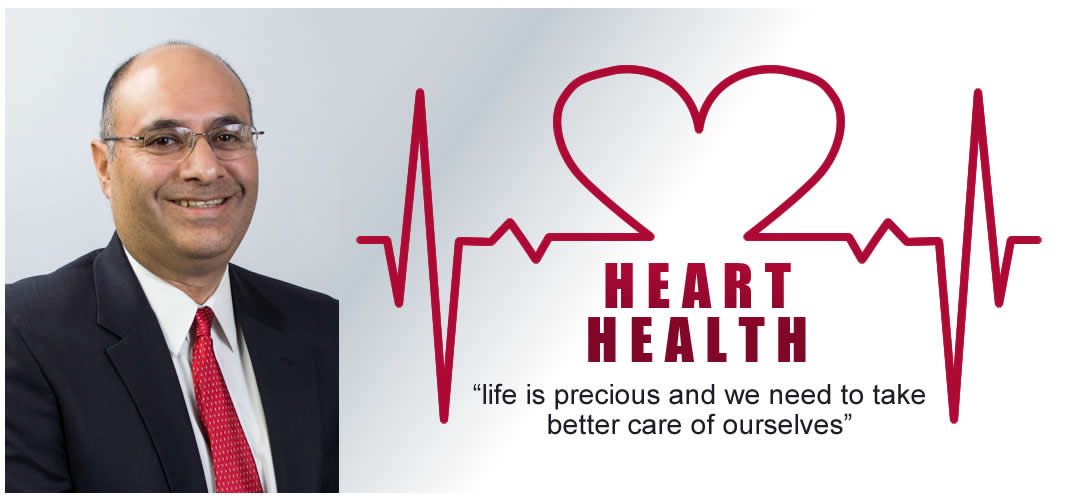By JOE ALCORTA/Executive Director for Human Resources
Spring is here! I have always loved this time of the year. Baseball season has begun. It is time to dust off the golf clubs and get in a round or two. Plus, I have an April birthday. In the school business, we have ONE six weeks left until the summer time.
Well, I am extremely thankful for this spring since many of you may know that I had a heart attack and a stroke on January 23. (I knew I should have studied for that stress test!) The doctor has told me that I had two indicators: my age and gender. However, thankfully with all the thoughts and prayers, I am doing extremely well. So I want to share with you what I have read and learned to help prevent you from having a heart attack and stroke.
Number 1: Don’t smoke or expose yourself to second-hand smoke. I know that it sounds like I am preaching, but the evidence is overwhelming. Smoking increases the risks for heart disease, lung disease and stroke.
Number 2: Monitor your blood pressure and cholesterol. High blood pressure is the “silent killer” as it goes without symptoms in most people. The higher your blood pressure the greater your risk. You also need to monitor your “lipids”. I did not know what a lipid was before all this happened, but blood lipids include LDL (bad cholesterol), HDL (good cholesterol) and triglycerides. The lower your LDL and the higher your HDL, the better your health.
Number 3: Lower your calories. The obesity rate is alarming, contributing to diabetes, which is a cardiovascular disease. Obesity is caused by eating more calories than your body burns. We need to do smaller portion sizes, do not “super size”, and drink water, unsweet tea or coffee at mealtime. The doctor told me to eat more turkey, chicken, and fish. In fact, he said “no red meat” or fried food. After I reminded him that I was a “TEXAN,” he stated that I could have lean red meat twice a month the size and thickness of a deck of cards.
Number 4: Exercise daily. The lack of exercise contributes to obesity. Studies indicate that walking two miles a day is ideal for overall health, and those two miles of walking do not have to be done all at once! Exercise does more than burn calories; it improves your cholesterol. I even read that exercise is one of the best treatments for depression and anxiety. However, exercise alone cannot control or reduce your weight—–you have to modify your diet.
Number 5: Reduce stress. Stress contributes to cardiovascular disease and, if severe, can cause a heart attack. Here are some activities that aid in reducing stress: regular exercise, adequate sleep, laughing, volunteering or attending religious services. Also, try to avoid situations and people who make you anxious or angry, but you still need to come to work.
I hope what I have learned will benefit you. I know that we often push ourselves to limit and spend a lot of time taking care of our students. I encourage you to take a few of these suggestions and apply them to your life. I was reminded that life is precious and we need to take better care of ourselves.












